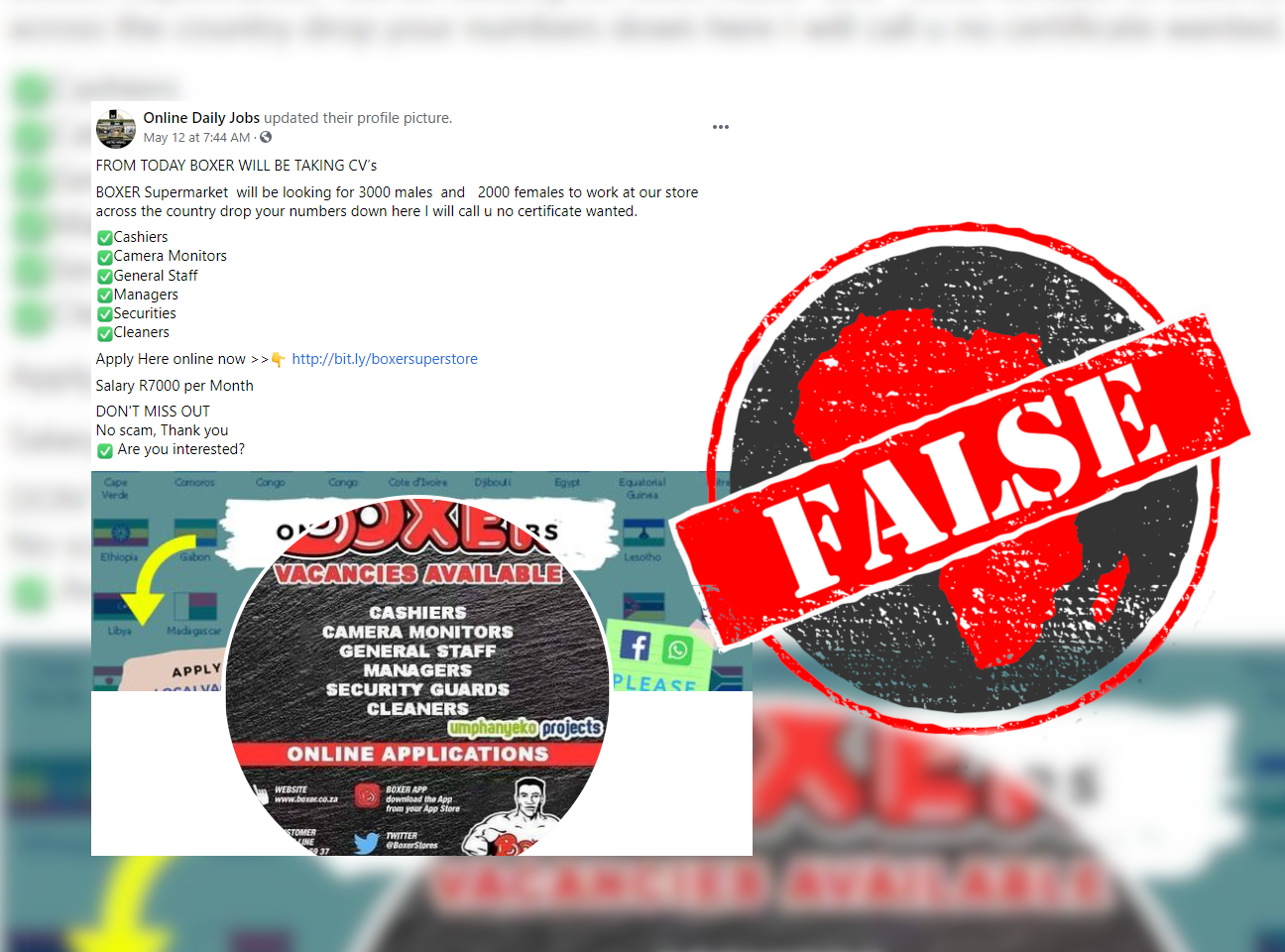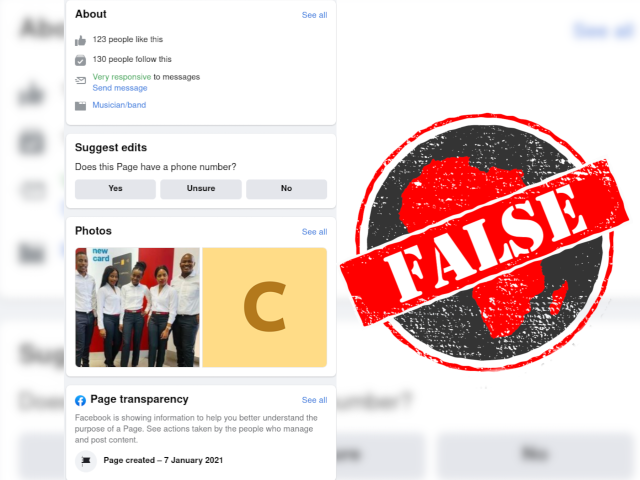The Facebook page “Online Daily Jobs” advertises jobs from a wide range of companies in South Africa, including fast-food outlet KFC, clothing company Jet, supermarket chain Spar, and jobs at government hospitals.
Applicants are offered salaries between R7,000 and R26,600 per month, with no qualifications and little to no experience needed.
But the page shows all the common signs of being a scam, like many others Africa Check has previously exposed.

Job listings link to fake Department of Labour page
The job listings link to one of two Google Forms rather than the official websites of the companies that are supposedly hiring. Google Forms is a free service where pages are quick and easy to set up and look official.
One of the websites is designed to look as though it is the official labour department website. But the URL of this website and the layout differ from the genuine South African employment and labour department’s job listings page.
The suspicious pages also don’t give any genuine way for people to apply for jobs.
The job posts on Facebook encourage people to comment. One says: “Yesterday we Called almost everyone who Commented ‘help’ on our Previous posts.”
Other posts tell interested applicants to post their cell phone number in the comments.
These are examples of engagement bait – posts that ask people to like, share, or comment in order to increase the post’s reach.
The poor grammar used in some of the posts is another red flag of a job scam. And none of the posts state where any of the advertised jobs are located.
When you see a job advertised on Facebook, avoid giving personal information such as your cell number in the comments and make sure that the link provided takes you to the company’s official website.
For more information, read our detailed guide on how to identify Facebook scams.
Republish our content for free
For publishers: what to do if your post is rated false
A fact-checker has rated your Facebook or Instagram post as “false”, “altered”, “partly false” or “missing context”. This could have serious consequences. What do you do?
Click on our guide for the steps you should follow.
Publishers guideAfrica Check teams up with Facebook
Africa Check is a partner in Meta's third-party fact-checking programme to help stop the spread of false information on social media.
The content we rate as “false” will be downgraded on Facebook and Instagram. This means fewer people will see it.
You can also help identify false information on Facebook. This guide explains how.



Add new comment